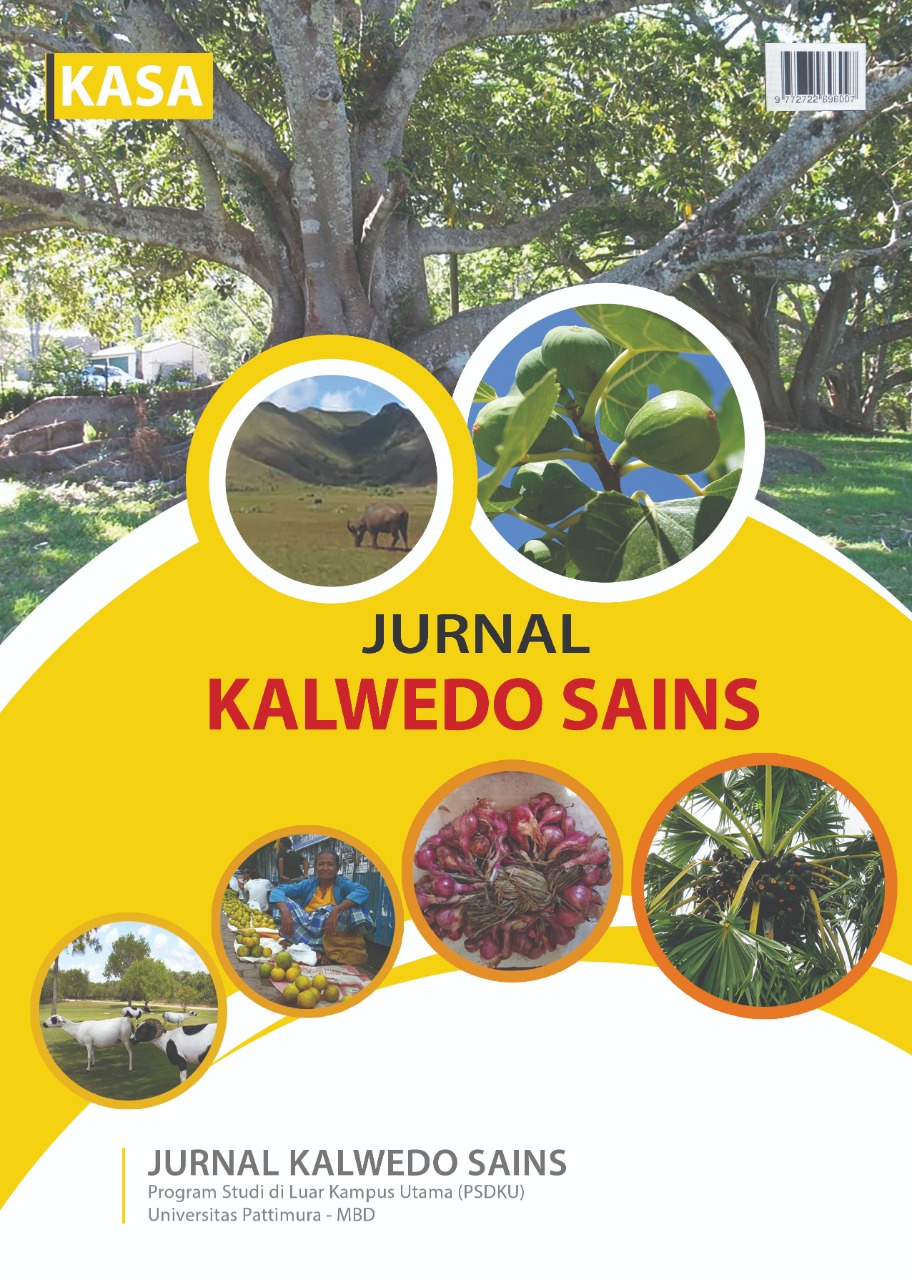Analysis Of Physical Quality And Chemical Content Of Corn Crop Silage With The Addition Of Sago And Tapioca Flour Additives As Ruminant Animal Feed
Abstract
This study aims to find out the fission quality and chemical composition of corn crop silage with the addition of sago flour and tapioca as additives. This study includes three treatments, namely: (P0) corn crops 800 g without additives added, (P1) corn crops 800 g with the addition of 10% sago flour additives, and (P2) corn crops 800 g with the addition of 10% tapioca additives. Incubation time starts on days 7, 14, 21, and 28. The incubation time silage of days 7, 14, 21, and 28 was assessed for physical quality including color, smell, texture, and the presence of fungi using questionnaires filled out by five students as panelists. Silage incubation results of the 21st and 28 th days, in addition to being assessed for physical quality, also analyzed chemical composition including dry matter content (BK), organic matter (BO), coarse protein (PK), gauze fiber (SK), and NH3. Physical quality assessment data is analyzed descriptively while chemical composition data is analyzed statistically using randomized completely block desing (RCBD). If there is a difference in treatment, followed by Duncan's new multiple range test (DMRT). The results of the analysis of the physical quality of the silage of the corn plant as a whole are of good quality (yellowish-green color, sour smell, the tesctur is not mushy and still clearly visible, and there is no fungus). The results of a statistical analysis of the chemical composition of corn crop silage with the addition of 10% sago flour and tapioca showed a noticeable difference (P<0.05) to nh3 concentrations, organic matter content (BO), and coarse fiber (SK).
Downloads
Copyright (c) 2022 Albertus Sairudy, Andriyani Astuty, Ristianto Utomo

This work is licensed under a Creative Commons Attribution-ShareAlike 4.0 International License.












